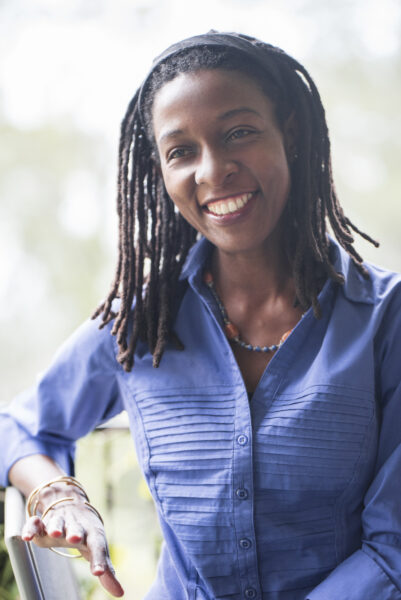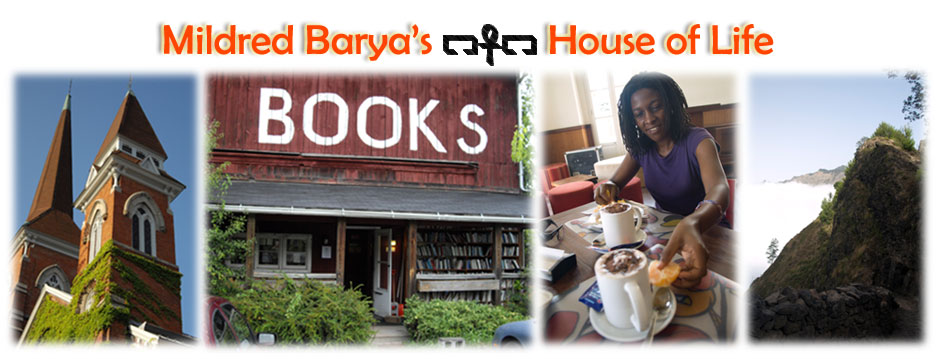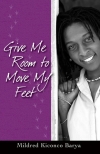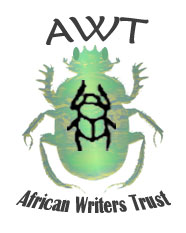Associate professor of Creative Writing and World Literature at University of North Carolina-Asheville.
Here’s how it began:
When I decided that I wanted to be a professional writer in the tradition of the scribes of Ancient Egypt, a teacher appeared. I had the great fortune of being mentored by Ayi Kwei Armah (mostly known for his debut novel, The Beautyful Ones Are Not Yet Born) for nine months at his residence in Popenguine, Senegal. At the time, I had completed Masters studies in organizational psychology at Makerere University, Uganda, and was working with Ernst & Young (EY), as Human Resources Advisor to various companies in need of our consultancy services. The pay was great, life was good, yet deep down I felt that I was moving away from my first purpose.
In 2005, I spent three months on secondment to Eskom in Jinja, evaluating staff performance and the overall organization structure. I was staying in a nice hotel and in the evenings after dinner, I would revise poems that became my second collection, The Price of Memory. Soon after, British Council-Uganda put out a call for manuscripts to be published by Mallory in the UK. I submitted and was selected along with three other writers: Patrick Mangeni’s collection of short stories, A Leopard in My Bed and Other Stories, Glaydah Namukasa’s novel: Deadly Ambition and Julius Sseremba’s short story collection, By the African Fire. Our four books were launched in Uganda in March 2006.
Four became a magic number for me but I didn’t know then. When Armah put out a call for upcoming writers to study and write with him for nine months, my heart foxtrotted. I applied and started feeling the pull—strings from EY that showed me what a great career I was making for myself in HR, and strings from Armah’s writing residency alerting me to not abandon my dream, to take up the opportunity if it fell in my lap. And it did. Four of us were selected: Aissatou Ka from Senegal, Egya Sule from Nigeria, Kofi Duodu from Ghana, and yours truly from Uganda. But before I could say yes, I spent weeks in agony, asking myself and my friends, Should I go should I not? But I was doing great in HR. For once my mother was proud of me. But then I loved writing more than I loved life. What to do?
I made a deal. With EY. They would let me go for nine months in 2006-2007. I would return thereafter and continue the good work. Problem solved.
Some of you can already tell where this is going. I took up the residency and it transformed my life, my thinking about writing and what I really, truly, wanted to do in life. I was exposed to Francophone writers and a critical understanding of the work and research of Cheikh Anta Diop, Léopold Sédar Senghor, Mariama Bâ, Ousmane Sembène who I could say was Armah’s best friend, and the Egyptologist Théophile Obenga whose fat book; African Philosophy, Armah had translated from French into English. These thinkers had found the kernel of alchemy. I wanted to touch it too. At some point during the residency we paid a visit to Ousmane Sembène and I felt the air in the room change. It got very hot and I realized I was on fire for deeper knowledge. Strange I don’t remember if we shook hands or hugged, probably both. I’ve since carried with me the picture of Sembene in the living room, seated on a mat in a lotus position, wearing a black and white sweater with horizontal lines and multicolored pants with zigzag African prints, looking so fragile and wise. I remember thinking, I could lift him in my arms like a baby.
Before the residency ended, I was approached by TrustAfrica Foundation in 2007 with a question, Would I be interested in working with them as a Writer-in-Residence for two years in Dakar? The place was inspirational, the pay was good, the people were wonderful, and I could really use some French. I said goodbye to human resources consulting and turned to full time writing. Learning French in between—which by the way, I don’t speak but can read—And poring over texts in hieroglyphs, which I still find fascinating. Before leaving Senegal, I published and launched my third poetry collection, Give Me Room to Move My Feet with Amalion Publishers in Dakar so I could leave a part of me in the land of writers that had given me so much.
It was at TrustAfrica that I realized if I wanted to be a writing pro, it would be helpful to go for the MFA in creative writing. After my two years as an organizational chronicler, I was admitted to Syracuse University in 2009, and again had the wondrous fortune of working with brilliant mentors and incredible human beings: Arthur Flowers, George Saunders, Chris Kennedy, Dana Spiotta, Michael Burkard, Bruce Smith and Mary Karr. I couldn’t have made a better choice.
After the MFA in 2012, I taught creative writing for one year at ASFA—Alabama School of Fine Arts in Birmingham, while I figured out the next course of action. My students were engaging, creative, dedicated, imaginative and inspirational. They made me want to teach and write forever. So, I decided to go back to school, get a Ph.D. and join academia for the long haul. This time knowing the magic of four, I sent applications to four Universities and three said Yes.
In September 2013, I studied and taught at the University of Denver. On June 3rd 2016, I graduated with a Ph.D. in English—Creative Writing and Literature. In August 2016, I began full time teaching (and continued writing) as Assistant professor in English at the University of North Carolina-Asheville. It has been a long journey and I do not think I would have arrived where I am now without the kind guidance and attention of my mentors across literary traditions. As a result, my teaching and scholarship are richer and I know this is still just a beginning, the tip of what’s going to be a long and industrious future. I have three manuscripts—a novel, a collection of short stories and a hybrid of creative nonfiction—that I’ll be sending out soon. I look forward to when they’ll appear for the first time in public. I have dream classes I intend to teach and research projects to conceptualize.
My narrative reads like a straightforward path but in truth it hasn’t been. It’s human nature to tap into a progress narrative, to notice beginnings and endings, but if I am to be honest, I’ll acknowledge that I first became aware of a desire to write when I was a child looking after cattle on our farm in Kabale. Left alone with cows, and later on goats and sheep, I started making up conversations with livestock, giving them names based upon their behavior and so my first stories were to the animals. I didn’t take them seriously then. It was my way of killing time but years later, in reflection, I realized that a seed had been planted. I nurtured it the best way I knew how. It is to the animals of my Earth-School and psyche that I return to again and again. In nursery, I wrote my own versions of Humpty Dumpty and other rhymes which the adults thought were silly, clever and cute. In primary school I wrote letters to invisible friends and kept them under my mattress. In high school I wrote plays and poems that were performed in the artistic clubs I belonged to. I wrote poems to celebrate special occasions for my family and friends. When I joined Makerere University in 1996, my literature teacher, Prof. Susan Kiguli, saw the seed and watered it. By then perhaps it was a plant. Her poetry was dynamite and revived my own. Prof. Timothy Wangusa, Prof. Okot Benge and Prof. Austin Bukenya were my other influences.
By the time I graduated in 2000, I had a job with the Uganda Women Writers Association (FEMRITE) and was also writing part time journalistic articles for the Monitor newspaper. Later, I hosted a radio show on Monitor FM—The Book Club program—that became popular, and also started a Readers/Writers club at FEMRITE that I’m glad is still running today. I loved igniting conversations about books, interacting with stakeholders in the book industry, the publishing experience at FEMRITE, and journalistic work with The Monitor. I also gained travel experiences in and outside Africa writing features for the Sunday Monitor. My eyes opened to perceptions of ‘the other’ in the media and travel literature. One day I’d have a book with my own insights.
In spite of this rich and delightful life, I yearned for more–vast experiences and expansion of my mind. That’s why I went back to Makerere University for a Masters in Organizational Psychology, this time with the intention of making a life that would support my creative writing since I didn’t know yet how to make creative writing support my life. What happened instead, the Organizational life threatened to take over completely and leave no room for writing. On the job I shone and got promotions that rubbed my ego the right way. Inside however, I felt stifled. Here was a good thing killing my other good thing–my baby, my larger dream. How to make a life out of writing or, at least, find balance? Isn’t it a mystery–the balance we seek to keep us from tipping over, from overreaching ourselves…
The image that best communicates my writing journey is a baobab tree. I have branched out in different directions but I remain connected to the one love, one source of profound joy, that is writing creatively. When I write, I solve problems. I am a resourceful person capable of doing exceedingly well anything I focus my attention on, and I happen to be blessed with enormous powers of concentration. But there’s a bell inside my brain. When it goes off, I know it’s time to change gears. The other way of saying this is when the Joy runs out, I know I’m doing more of this other thing instead of sustaining the writing that nourishes my spirit, that keeps me hungry and fed simultaneously.
My resistances have also showed me that an obstacle is oftentimes a path. I never thought I’d be a teacher. I’d be talking to people and they’d casually ask if I shouldn’t be teaching. At FEMRITE when I was in charge of editorial trainings and creative writing workshops, the participants naturally told me that I was a very good teacher. I would tell them that there was a difference between training and teaching. What I did was training–building capacity–as it were, not teaching. At EY I was responsible for HR training for consulting firms. They also told me I was a great teacher. I resisted the label. I was a trainer. A coach. A mentor. Anything but—” Duh! When I lived in Senegal, Armah mentioned several times that he saw me teaching in the US and I fought him. He smiled. When I started working with TrustAfrica and later told Akwasi, the director then, that I was interested in the MFA program, he said, Oh, then you’ll teach and you’ll be excellent at it. As usual, I brushed him off. You see, my parents were teachers. I did not want to walk in their footsteps. Surely, I could imagine and create a different career for myself.
As fate would have her way, the MFA fellowship came with teaching. I said, fine, I’d do it for the purpose of meeting the requirement. I was wrong. Very wrong. For one, I don’t do things simply because they’re required. When I set my mind on something, it’s because I want to. My first time in the classroom, I don’t know how time passed. It was fluid! I was fluid and firm. I felt something of my old self –the teacher at heart–and something else new altogether. When class ended, I rushed to the bathroom and cried. Oh, the Joy and release of resistance! The path cleared. The god of Mercury had appeared on my side (also known as Hermes/Thoth). Winged sandals that I love, swift in flight. Such feelings of lightness and discovery overcame me. I was surprised, shocked that the thing I’d fought might support my writing and be supported by writing in return. Was I getting ahead of myself? It happens–to see a whole new future fall in place all at once. I made a deal with myself this time. If ever the joy for teaching (in the traditional sense) runs out, change gears. And now I know with the wisdom that sits softly on my shoulders that I am a teacher to the core of my being–writing from my perspective is all about teaching–so I’m not confined to the classroom.
Sarah McLachlan has a song about Fumbling towards Ecstasy that crystallizes what I feel when I step into teaching, which is also writing. Ecstasy. Energy of the greatest pleasure. This is my burden because I have something to deliver. But it is also my blessing because I have something I love to do.
The path goes on, the baobab grows. I cannot tell where all the branches will wind up. There is a clock and no clock. I can only stay open, curious, and ready for the way that “leads on to way.” Robert Frost said it best in The Road Not Taken poem, but he was wrong about two roads. The roads are endless, especially when you allow your imagination to show you the ways. Bless the journey.
—





